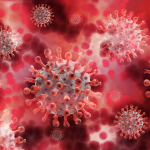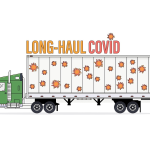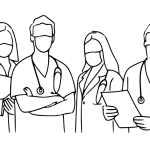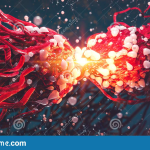A long life free of disease and illness is preferable for many of us. The evolving science behind life expectancy gives us clues on how to achieve this goal by looking at eight risk factors – the ones most under your control – that can add years to your life and, evidently, life to your years.
Disease
Social media influencers (SMI) are a growing advertising market, returning nearly six dollars for every dollar invested – a return on investment of 5.78. These SMI are the next step in direct-to-consumer (DTC) marketing. A new study looks at the patient influencers in healthcare.
The spread of SARS-CoV-2 infections through many mammal species in the wild raises the specter of deer becoming a SARS-CoV-2 reservoir — a permanent home for the virus and a regular source of outbreaks in other animals, including humans.
In order to prepare for the emergence of new SARS-CoV-2 "variants of concern" or other epidemic coronaviruses, researchers are taking a variety of approaches to creating vaccines that will protect against not only known viruses but also against variants that have not yet appeared.
When on a diet, especially one that requires 25% fewer calories, time seems to go so slowly between meals. Does that perception of time result in a slowing of our aging? A new study considers the relationship between calorie reduction and the clocks that measure our biological, rather than chronological, aging.
Long COVID will take a toll on the nation's healthcare system for the foreseeable future, but we can reduce new cases by treating acute COVID infections with a commonly prescribed, inexpensive medicine.
There is little doubt that Candida auris (C. auris) infections are a growing threat. But the yeast is not resulting in the Zombie Apocalypse, nor is it a pressing problem for most of us. Let’s unpack the heated rhetoric.
The ability of masks, especially high-quality ones, to prevent the transmission of respiratory infections, including COVID-19, is incontrovertible, but some commentators have come unglued on the subject.
Notwithstanding the extensive efforts in private and public sectors, COVID-19 remains a threat, even as exposures may be limited and vaccines are widely available. Vaccination does not guarantee immunity, and not all cases are reported. Our objective was to characterize vaccine effectiveness as experienced by urban populations, as opposed to clinical settings.
A recent study looked at excess deaths among physicians during the time of COVID. While there were more deaths than anticipated, physicians fared better than the general population despite being on the front lines. What might that mean?
Medicine, like the science that underlies it, is seldom transformed by “Eureka” breakthroughs; rather, it is most often a process of systematically accumulating knowledge and making incremental advances. Radiation treatment for breast cancer is a good example: New data has enabled us to revise and improve old approaches.
There are plenty of reasons for skepticism about medical studies. Some are poorly designed or performed, and some conclusions are totally implausible. In addition, some interpretations of them are intentionally misleading, and some studies need not have been done at all.











